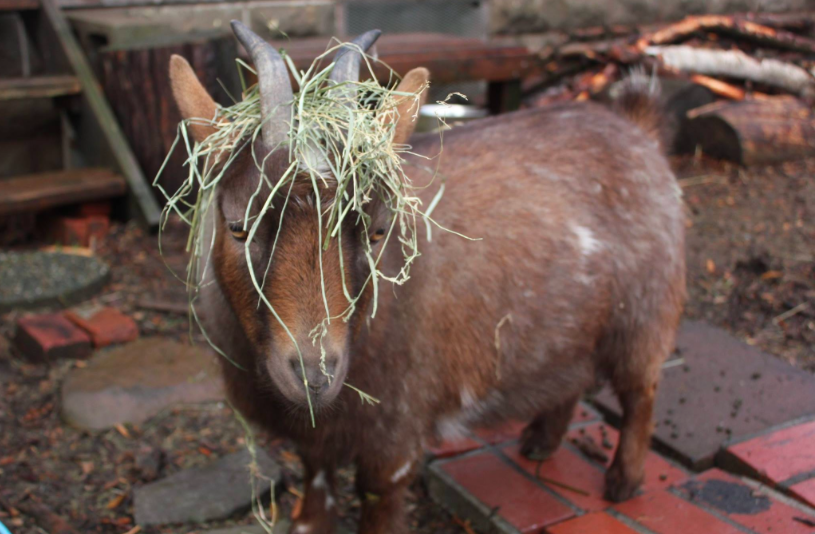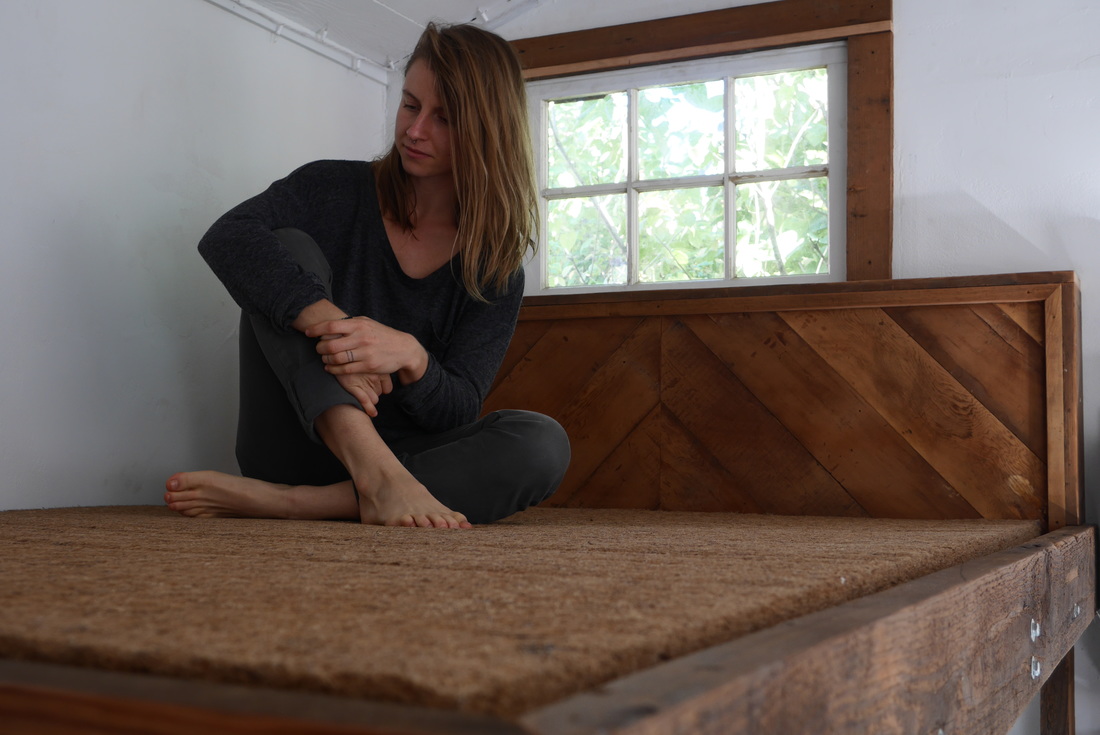|
I recently heard it suggested that the most pervasive addiction in modern America is not any substance or drug in particular, but problems in general. Problems, resulting in ongoing frustration, anger, discontent, and unhappiness, meet so many of our needs that, though we despise them, we tend to cling to them firmly. I have often observed in my social interactions the common ground that we are able to find with strangers and friends alike in our problems. Whether they are external: our neighbor, the government, the weather, or internal: depression, stress, and overwhelm, problems are something we all share. While I could say more about this, and plan to at a later time, I sat down to write with a slightly different intent in mind. I want to focus on one of the primary reasons I, and others I know, choose to sustain our state of discontent. The purpose discontent serves in my life is as my chief source of motivation. The reasoning goes that as long as I am dissatisfied with my current circumstances, the negative emotions resulting from this focus, fuel a desire to create change. As someone with an insatiable desire for growth, even after I have experienced changes in my circumstances, I must seek out new sources of discontent to provide more inspiration. The consequence of this pattern is that happiness exists only in the future, when my circumstances are different. In addition to this, what often happens is that I find excuses for, or distractions from taking the steps necessary to make changes so that I can maintain my sense of motivation. I hope you can see by now the complete irrationality of this behavior. As an aside, this is certainly not the only irrational behavior that I and most other people regularly engage in. The primary fear underlying this pattern is, if I allow myself to fully experience happiness in the present, I may grow lazy and no longer feel motivated to change the things in my life than I am dissatisfied with. Harvard Psychologist Shawn Achor has devoted an entire book to this subject. At the outset, he identifies the predominant understanding of happiness. Namely, that if I work hard I will be successful, and if I am successful, I will be happy. The wording of that statement may seem like it refers solely to one’s work or career, but the success I am concerned with relates to all areas of life: ones work, relationships, health, behavior, etc. Put simply, once I get what I want I will be happy. Not only are we poor at predicting what will make us happy (see Stumbling On Happiness by Daniel Gilbert), this pattern is based on fallacious reasoning. In his book, Shawn Achor draws upon many years of research to prove that the exact opposite is true; success does not lead to happiness, but happiness leads to success. Though I am currently reading his book, The Happiness Advantage, I have little need for scientific data. All the proof I require I have found in my own experience. Relying on discontent, as leverage to induce change, has not worked out well. It amounts to shaming myself into being better. I have believed that to be happy was to admit defeat, to settle for less than I am capable of, or that others, looking at my current circumstances would think me crazy or stupid for being happy. Achor writes, “Happiness is not the belief that we don’t need to change, it is the realization that we can.” As I wrote in the previous post, when a long applied strategy is not working, it’s irrational not to trade out for a new one. I have thus resolved to try out happiness for a change. At worst, I will be no more successful than I am now, but will feel better on a daily basis. At best, happiness and gratitude and will provide a much better foundation upon which to build a life of quality work, creativity, love, and continual growth. The only downside I can see is that being happy tends to piss people off, as it challenges their volatile love affair with problems. We’ll talk more about that in the near future. -Johnny
1 Comment
The definition of insanity is doing the same thing over and over, but expecting different results. This quotation is most often credited to Albert Einstein. I can build no case for or against such an assertion, nor will I try. If this definition established the basis for one’s committal to a psyche ward, we’d all be well on our way. I have expended a great deal of energy lately in trying to identify this pattern in my own life. I have detected its presence in one form or another in almost every area of life where I have not obtained the results I desire. I recently posed the question to myself, “In all your years of indulging perfectionism, how many perfect outcomes have you produced?” The answer is a resounding “zero.” The follow up, somewhat sarcastic, question becomes, “How’s that approach working out for you?” I can only concede that it hasn’t worked out well at all.
Each person has a primary strategy, or repertoire of strategies they employ in the game of life. Our strategies are most often developed as ways of navigating and surviving our childhood. In response to our parents relationship with each other (or lack thereof), the positive and negative feedback we received, and the horrific things that we done to far too many, we developed tactics that served us as well as they could. As children, we subconsciously adapted to our environment, doing our best to thrive, or in many cases, merely survive. As adults, we run into many problems when we continue to employ the same strategies that served us well as children. For me, the primary strategy that I developed as a child was perfectionism. Having grown up in a large family, I perceived that the demands put on my parents, by each other and my siblings were all, or even more than they could handle. Thus, from a very young age, I made the decision to avoid putting any additional strain on my parents, primarily my mother, through the pursuit of perfection. My belief was that if I were perfect, my parents could focus all of their attention on the rest of the family. As I mentioned, that strategy, underpinned by a noble intention, has not served me well in adulthood. Each time I have faced imperfection, or performed at a lower level than I expected of myself, my approach was simply to try harder. I would employ the same strategy in hope of obtaining different results. In sticking with this strategy, I have achieved far less than I might have otherwise. Additionally, I have at times been continuously frustrated, found myself practically devoid of any self-esteem, and taken a critical view of the world and others as a result of extremely black-and-white thinking. As I’ve woken up to the realization that it is time trade out that old strategies and try out some others, I been able to hear despair knocking at the door. The temptation has been to indulge in even further self-deprecation: “Why did it take so long for you to realize this?” “How could you have been so stupid?” “Imagine if you had realized this sooner?” I have been able to successfully resist the temptation to dwell on these questions by employing some new strategies: -Seeking the loving support of my wife and friends. -Cultivating optimism about the future afforded to me by my newfound understanding -Reminding myself of the positive intent behind my behavior, that I was doing the best I knew how at the time Ask yourself where in life you are not obtaining the results you desire. It could be in your work, your relationships, or another area such as diet, health, habits, etc. It is quite possible that you are employing a strategy that you developed at another time in life for a different purpose. Perhaps it is time to abandon an old strategy and experiment with another? The worst that could happen is that you’ll end up in the same place you are now. If that be the case, try another. -Johnny It's that time of year. Johnny and I caught a bug this week so I thought I'd revisit some of my cold/flu protocols. I realize I haven't been on top of my game lately, ideally I would be doing some proactive/preventative care every single day, in sickness and in health, but we all fall off the band wagon sometimes. Here is my protocol for supporting yourself with a cold:
It's magical walking into the 10 acres of forest we now own to harvest herbs. Its that feeling you get as a small child before you understood ownership. The forest has always been a child's wonderland. It most definitely was for me. That is honestly what led me to herbal medicine in the first place, I wanted that child-like re-connection with nature. Today I wanted to share with you one of the herbs, or I guess its a Lichen, that I have in abundance on my property: Usnea Usnea grows like whispy gray-green beards from hardwood trees in rainy forests. Usnea contains an acid that is antibiotic. It is used for infections with gram positive bacteria like strep throat. It is not effective against gram negative bacteria like e. coli. It is documented that Usnea was more successful as an antibiotic than penicillin in tuberculosis and strep throat. How to Harvest: Find a forest with hardwood trees. Usnea is usually hanging from tree branches. After a storm is a great time to harvest because the wind has blown down a lot of the unreachable pieces. It is a very slow growing Lichen so don't over harvest, only take what you need. To identify it correctly you'll need to look at a few distinct factors: -Here in the Pacific Northwest our Usnea can grow up to a foot long! In some other parts of the country it's small. -Look for a single attachment like in the photo below. Other lichens will be attached more broadly while Usnea has a single "stem". -Pull apart a strand in your hand. It should be stretchy and have a white core like in the photo below. Photos from: http://www.christopherhobbs.com/wp-website/wp-content/uploads/2015/01/Usnea-booklet-text.pdf Uses: Fungal infections Acute bacterial infections Lupus (auto-immunity) Second and Third degree burns Athletes Foot Ringworm Urinary tract infection Colds/Flu Tuberculosis Sinus Infections Preparation/use Tincture: 1:5 (herb to liquid ratio) 80% Alcohol Dilute in water as it can be an irritating tincture Specific dose: Dropper 2-3x a day for acute bacterial infections Has your bed ever caught on fire? Mine hasn’t. What would you do in order to prevent your bed from catching on fire besides blowing out your candles before you fall asleep? Would you protect yourself with fire retardant chemicals that off-gas every night while you sleep? Would you do it if these chemicals were known to cause health problems? Some of you are probably like, “great, another product I have to worry about.” I feel you.
As some of you know, Johnny and I have been building a tiny house for the last few months while temporarily living in a basement apartment. This is the kind of basement where your towels never dry and you always feel the slightest bit damp. We only agreed to stay here as a temporary, cheap option while we build and knew the risks of mold in a space like this, especially in our damp Pacific Northwest climate. A few nights ago I was moving our mattress, an old Ikea futon given to us by a friend, when I noticed a sprawling micro-climate of black mold across the bottom...and it was wet. Besides being completely grossed out I made this connection with how I had been feeling the last month. I would wake up in the morning more tired than I should be with a slight headache and shortness of breath. I now attribute my issues to my black fuzzy foe living beneath where I sleep. It was like the upside down world had come to haunt me. So we added “get a mattress” to our ongoing list of things to do. This was incredibly frustrating because we are swamped with projects to complete on the tiny house and strapped for money with our large land purchase earlier this year. So not only did I get sick from this scenario, now I needed to spend money and make the effort to go buy a new one. It may sound simple but unfortunately, as I mentioned at the beginning, there is more to mattress toxicity than the possibility of mold. Earlier this morning as Johnny was researching mattresses he jokingly stated, “the simple desire to have something that’s not covered in poison makes you feel high maintenance.” We laughed outwardly but inwardly the stress of trying to live a toxin free life is real. Johnny also stated, “you know something is wrong with a culture when it costs more money to buy something that is unprocessed than something covered in chemicals.” This goes for our household products and our food industry. I had already been exposed to black mold because of my mattress and now I might have spend my nights sleeping in a chemical nest. It is required for mattress companies to use fire retardants on anything from a mattress to a couch. The only way to get around it is to buy a mattress made of wool, which is naturally fire retardant. The chemicals found in 90% of mattresses are as follows:
Fun Right? Apparently the mattress has to remain unlit while being blasted by a two foot wide, open flame blow torch in order to pass the test. For healthy individuals you may not notice the health issues up front, but it may diminish your health over time. It’s especially important that children and immune-compromised individuals to sleep on toxin-free mattresses. Think about it, you’re sleeping 50% of your life so shouldn’t your mattress be of utmost importance? For more on these chemicals: http://www.peopleforcleanbeds.org/material_safety_data_sheets.htm An interesting side note. You can get a doctor to prescribe a fire retardant free mattresses for patients if they believe that the health risks posed by toxic fire retardants will interfere with the patients' well-being. Enough said. Johnny and I really wanted to make a sand mattress, which is basically filling a mattress cover with sand. It’s suppose to be grounding and super helpful for bones and joints. Unfortunately our tiny house loft won’t carry the weight of 500 pounds of sand, maybe we’ll try it out in the future. For now we have purchased a coconut husk mat that will not mold and contains zero chemicals. We are laying wool blankets on top for more cushion. If you have the money you can buy a mattress from companies like these: http://www.myessentia.com https://savvyrest.com http://soaringheart.com/products/organic-cotton-wool-shikibuton If you’re like Johnny and I you may want to go cheap or DIY here is what I recommend trying: Coconut Husk Mat: This would be a base and then we'll sew a softer topper for it with. You can buy an Organic Wool Mattress topper if sewing isn't your thing: Wool Mattress Topper Sand Mattress: You could make your own. When we’re trying out mattresses what are we usually looking for? Most people will say, “something cozy, soft and plush.” Some people want to sink into their mattress believing this has the most support for our body. “A mattress in any true sense of the word causes the hips to sink in and the lower back to collapse, which interrupts natural alignment. Ironically, this is the same effect that chair sitting has on the body. When the back collapses in on itself, whether sitting or lying down, the lungs cannot hold as much oxygen and breathing is immediately hampered. When the body does not get its optimal amount of oxygen, the parasympathetic nervous system which induces relaxation is impeded. When breathing is shallow, the stress hormones adrenaline and cortisol are overproduced--which keeps the body from fully relaxing. Cush is not really cush. Paradoxical yes, but according to this paradigm, resistance is cush.” For more a more indepth description visit: http://www.zafu.net/sleepergonomics.html So apparently our little coconut husk mat is going to be the best mattress for our bodies. I’ll check back in and let you know how it feels! What is the most common phrase you speak to yourself? For me it's probably: I want to live with authenticity and passion. We can also have negative common phrases, or incantations we tell ourselves. One of mine is: I will never be successful. I am not good at being truly affectionate and vulnerable. The problem, or the benefit, with incantations is that we actually hypnotize ourselves. Positive or negative incantations have real life implications. It changes how we act, how we view ourselves, how we view other people, etc. The biggest impact you can have on your life is to change your incantations to encouraging, positive words and phrases. It's been proven that people are more likely to succeed in life if their self-talk is encouraging. If you are suffering from self-confidence issues remind yourself of how strong you are. Make a list of the things you've done in your life that required great inner strength. If you are suffering from feeling inferior in relationships with others remind yourself of the ways you care about others. Make a list of the things you have given to friendships in the past and present. Add in things that you desire to give in relationships and that you know have within but haven't given out yet. If you are suffering from feeling critical and angry remind yourself of how compassionate and caring you really are. Sometimes the hyper-critical people are the most compassionate of all, they just don't know how to let go and be themselves. Write your true compassionate and caring desires down. Get specific with it as it applies to your life and relationships. This one is really true for me because I have suffered from a very critical world view and yet I feel like at my core I am exceptionally compassionate. We're taking the things we want to change, or the things we think we're bad and we're looking at the positives. If we think we can't do anything right then we're going to start speaking that incantation to ourself and then it will come true in our life. Instead we need to focus on our positive qualities, the things we have accomplished, the people we've given our love to and so on. This reframes how we view ourselves. If we want to help and contribute to others then we need to see the positives in ourselves. This is what creates good interpersonal relationships. We all want other people to feel good about themselves but then we don't practice the same kindness for ourselves? What kind of double standard is that? I'll go ahead and practice what I am preaching. Here is my list. These are my CORE STRENGTHS. Get a piece of paper out and do this now! We're so uncomfortable with saying what we're good at. I think we can sometimes see it as arrogant. This is unfortunate because self-confidence in a healthy way is so beneficial to us and everyone we love. Lift yourself up. I am compassionate I am a deep thinker I am always trying to improve and grow I try new things I have a strong spirit I desire to be encouraging and giving in my friendships I am open to others point of view I care about people I love giving people gifts I am a great poet who can communicate my deep thoughts with written words I am intuitive and can sense people's feelings and emotions You can keep writing as long as you think of things. I would re-read this or add to it at the beginning of every new day. Speak these things out loud, write them on a poster, put it where you can see it. Whatever works for you! Live Epic, Bailey |
Details
Bailey Patrice & Jonathan DavidCategories
All
Date
December 2017
|












